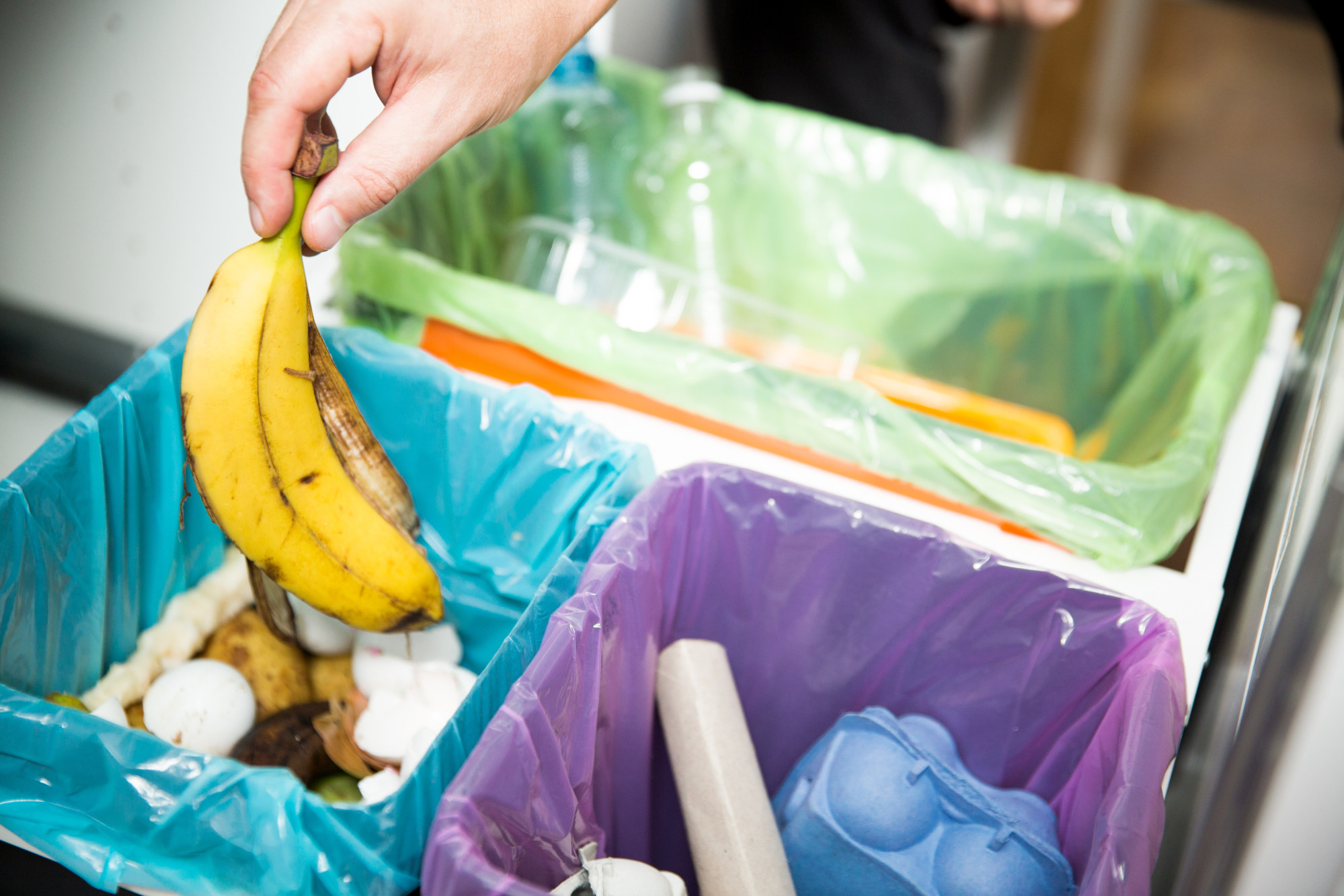
Hong Kong to install food waste collection bins at every public rental building in 2 years
- Lack of such facilities were said to be partly to blame for failure to launch controversial waste-charging scheme
Hong Kong authorities plan to install a food waste collection bin at each public rental building over the next two years, as a lack of such facilities was said to be partly to blame for the failure to launch a controversial waste-charging scheme.
Environmental officials said on Wednesday they would continue to enhance the food waste collection network, including adding more bins at 55 public housing estates with high disposal rates before the fourth quarter of this year.
“In the coming year, the Environmental Protection Department will further enhance various domestic food waste collection measures,” Secretary for Environment and Ecology Tse Chin-wan told lawmakers.
“We will continue to explore the possibility of setting up more public food waste recycling points at suitable premises to provide more convenient recycling outlets for the public.”
The minister was responding to queries from lawmaker Dennis Leung Tsz-wing of the Hong Kong Federation of Trade Unions about household food waste collection.
Tse said environmental authorities would have helped 213 public housing estates install more than 700 food waste bins by July, covering about 1,500 buildings.
The department had set up 698 food waste bins at 197 public housing estates so far, he added.
Such bins were equipped with overflow prevention and odour abatement devices, as well as weight and fill level sensors that notified cleaning staff to replace the bin when it reached 70 per cent capacity, he noted.
“The Environmental Protection Department has provided additional resources to the Housing Department for strengthening its manpower to enhance cleaning services in all participating public rental housing estates,” Tse added.
He also expected to have more than 400 food waste bins in operation at private housing estates by the end of the current financial year and at about 100 spots for night collection services within the coming 12 months.
Environmental authorities would also subsidise the installation of food waste collection bins and pre-treatment facilities in rural villages, Tse said.
Last month, the government suspended a long-awaited pay-as-you-throw scheme indefinitely amid public confusion and concerns about affordability.
A two-month trial run that started in April at 14 sites recorded compliance rates as low as 20 per cent.
Lawmakers accused the government of introducing waste charging “too haphazardly” at a time when the coverage of food waste collection bins was still insufficient.
Latest government data showed that food scraps accounted for 34 per cent of the 11,128 tonnes of municipal solid waste generated daily in 2022.

Tse told lawmakers the city had recycled an average of 270 tonnes of food waste daily over the past five years.
Lawmaker Leung, who raised the queries, said the government’s two-year target was too long and that the city’s capabilities to treat such garbage was “far below” the current generation rate of 3,000 tonnes per day.
At present, the city’s only organic waste treatment facility, O Park, located on Lantau Island, can process about 200 tonnes daily.
O Park 2, on Sandy Ridge near the border with mainland China, is expected to process about 300 tonnes a day and be operational later this year.
But Tse explained the facility, when needed, could handle double that amount, while some of the collected food scraps could be sent to sewage plants for treatment.
He added that the city could potentially treat as much as 1,000 tonnes of food waste a day.
Lawmaker Chan Siu-hung asked authorities whether they would consider introducing more advanced food waste processors that could handle scraps such as bones. Tse said they were contacting different suppliers to study various products.
The minister added they were looking into the different economic benefits between treating the waste in a centralised manner and at community facilities.
Thomas Chan Ting-hin, environmental affairs officer from advocacy group The Green Earth, agreed the two-year target was too long and not in line with authorities’ timetable for the proposed relaunch of the waste-charging scheme.
In announcing the suspension last month, Deputy Chief Secretary Warner Cheuk Wing-hing said authorities would address a Legislative Council panel about the public’s participation in waste reduction in mid-2025.
Chan also warned that increasing food waste collection sites would encourage consumption, potentially generating more garbage.
“Cutting waste is not just about recycling, but also about reduction at source,” he said.
